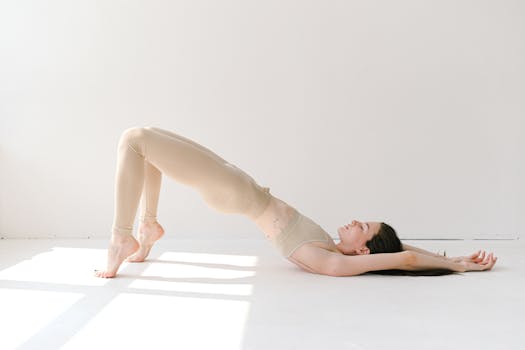
From Mat to Mind: How Yoga and Pilates Transform Your Mental Well-Being
Yoga and Pilates are two practices that have been around for centuries, but their impact on our mental well-being is more relevant today than ever. As someone who’s struggled with anxiety and stress, I can personally attest to the transformative power of these practices. In this article, we’ll explore the ways in which yoga and Pilates can help you cultivate a stronger, more resilient mind, and how they can be used as tools for managing mental health.
What is Yoga and Pilates?

Let’s start with the basics. Yoga is a physical, mental, and spiritual practice that originated in India over 5,000 years ago. It’s a system of postures, breathing techniques, and meditation that aims to unite the body, mind, and spirit. Pilates, on the other hand, is a physical fitness method developed in the early 20th century by Joseph Pilates. It’s a low-impact exercise system that focuses on strengthening the core muscles, improving flexibility, and enhancing posture.
The Benefits of Yoga and Pilates for Mental Health

So, how exactly do yoga and Pilates impact our mental well-being? For starters, both practices have been shown to reduce stress and anxiety by promoting relaxation and calming the mind. Yoga, in particular, has been found to decrease the production of stress hormones like cortisol, while Pilates has been shown to improve mood and reduce symptoms of depression. But that’s not all – these practices also have a profound impact on our self-awareness, self-acceptance, and self-compassion.
Through yoga and Pilates, we learn to tune into our bodies and listen to our inner wisdom. We become more aware of our thoughts, emotions, and physical sensations, and we develop a greater sense of self-awareness. This, in turn, allows us to cultivate a more compassionate and accepting relationship with ourselves, which is essential for maintaining good mental health.
How Yoga and Pilates Can Help You Manage Mental Health

So, how can you use yoga and Pilates to manage your mental health? Here are a few tips to get you started:
- Start small: Begin with short practices, like 10-15 minute yoga or Pilates sessions, and gradually increase the duration as you become more comfortable with the practices.
- Find a style that suits you: Experiment with different types of yoga and Pilates, such as Hatha, Vinyasa, or Restorative yoga, or classical Pilates, to find what works best for you.
- Focus on your breath: Pay attention to your breath during your practice, and use it as a tool to calm your mind and focus your attention.
- Practice regularly: Aim to practice yoga or Pilates at least 2-3 times per week, and ideally every day, to experience the full benefits of these practices.
- Seek guidance: Consider working with a qualified yoga or Pilates instructor who can provide you with personalized guidance and support.
In addition to these tips, it’s also important to remember that yoga and Pilates are not a replacement for medical treatment. If you’re struggling with mental health issues, it’s essential to seek help from a qualified mental health professional.
Conclusion

In conclusion, yoga and Pilates are two powerful practices that can have a profound impact on our mental well-being. By incorporating these practices into our daily routine, we can cultivate a stronger, more resilient mind, and develop the tools and techniques we need to manage stress, anxiety, and other mental health challenges. So, why not give it a try? Roll out your mat, take a deep breath, and discover the transformative power of yoga and Pilates for yourself.
